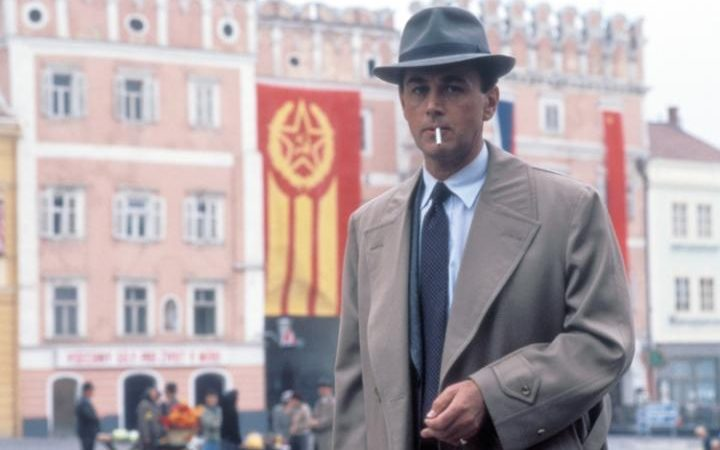It’s not often that a spy thriller aches. But A Perfect Spy, the BBC’s faithful adaptation of John le Carré’s semi-autobiographical novel, doesn’t so much explode with tension as it quietly collapses under the weight of betrayal, identity, and a father’s long shadow. It’s a slow burn, yes — sometimes agonizingly so — but for those with the patience to tune into its somber frequency, it delivers something rare: a spy story that feels devastatingly human.
Peter Egan stars as Magnus Pym, a British intelligence officer with a painful past and a damning secret: he’s also working for the Czechs. But this isn’t your standard double-agent fare. Instead of relying on Bond-style bravado, A Perfect Spy sinks deep into character study. Why does Magnus betray? Who is he really loyal to? And how did he get so lost?
The answer lies, in large part, with his father. Ray McAnally gives a thunderous performance as Rick Pym, a larger-than-life con man who treats life — and parenting — like a long con. His charm is undeniable; his destructiveness, inescapable. The show jumps between timelines: present-day scenes of Magnus on the run, and flashbacks to his strange, fractured upbringing. It’s these early scenes — often the most emotionally charged — that give the series its tragic spine.
Adding to the atmosphere is the late-’80s soundtrack — moody, restrained, and hauntingly appropriate. It underscores the emotional tension without ever pushing too hard, amplifying the series’ sense of quiet unease.
Visually, the Kanopy version may not win any awards for clarity. The print is faded, a little fuzzy. But oddly, that soft haze suits the tone. This is a story filtered through memory, regret, and disillusionment. Even the Cold War politics feel more like an ambient hum than a driving force. What matters here isn’t ideology — it’s identity. Magnus doesn’t seem to know who he is, and neither do we. That’s the point.
Some viewers might struggle with the pacing or find the narrative threads a little scattered. Fair enough. This isn’t designed for casual consumption. But if you stay with it, the emotional payoff is considerable. It’s not just about spying — it’s about survival, manipulation, and the emotional cost of a life built on lies.
The Spy Who Came in from the Cold made le Carré a household name. Tinker Tailor Soldier Spy gave us the cerebral ballet of Smiley’s world. But A Perfect Spy might be his most personal work, and this BBC version — quietly brilliant, painfully sad — does it justice.



Comments